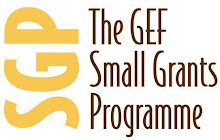As the hands of the clock approach midnight for sharks, organizations working for their protection have joined forces in a global communication network named Let Sharks Live, and declared 2009 The International Year of the Shark. The motion aims to raise global awareness of their imminent extinction and the oceanic crisis at hand.
Recent findings of the Global Shark Assessment indicate that at current rates of decline, extinction of the most threatened species of shark is forecast in 10 to 15 years. In large regions, species that were once numerous have fallen to 1% of their original numbers, in a massacre comparable to that of the buffalo on the North American plains 200 years ago, but on a much larger scale. For example, in the Mediterranean Sea there is a 97 to 99.5% decline in shark numbers.
Studies of oceanic sharks estimate 80 to 90% of heavily fished species are gone. Yet these intelligent animals, also called the “Wolves of the Sea” are still fished intensively, and finned, usually while still alive, for shark fin soup.
“The oceans have evolved over hundreds of millions of years with sharks as apex predators, so their loss will destroy oceanic health.” Ila France Porcher, founder of the think tank network, explains.
Some of the issues to be addressed include:
● Convincing the consumers of shark fin soup that shark finning is unsustainable and that the dish must be made using a substitute for the shark fins. Shark fin soup is a tasteless delicacy whose main use in the Far East is to display high social status. If there is no market, the slaughter will cease.
● Educating the public regarding the true nature of sharks and their threatened status, to counter the effects of shark attack hysteria, as spread by the mass media, and which for years has posed a serious barrier to their protection.
● Obtaining protection for threatened species
● Solving the problem of the slaughter resulting from the use of shark nets and drum lines, used to protect beaches in some areas
● Reducing bycatch losses, and the Total Allowable Catch (TAC) limits defined in fisheries law
● Promoting marine protected areas, and enforcing protection of sharks within existing ones.
● Persuading shark fishermen to practise tag and release only, rather than killing the sharks they fish.
The threats sharks face in this modern world of human domination are daunting. The enormous scale of commercial longline fishing and bycatch, the methodical massacre for shark fin soup, habitat loss and destruction, particularly of nursery areas, pollution, and a variety of smaller operations that have great impact taken together, are the main threats to the future of sharks.
"Our goal is to see the retreat of these magnificent animals from extinction's horizon." says Alex Buttigieg, cofounder of the network.
For further information, please contact:
Alex Buttigieg,(sharkmanab@gmail.com)
Ila France Porcher, (ila@smartech.pf)  In order to raise our civil society capacity, Forever Blue has launched a social network platform on http://csrmauritius.ning.com in order to gather all the informations that are still spread around regarding the numerous NGOs, their actions, their competences which could be useful to any of us in our projects or interesting for companies who aim at promoting CSR.
In order to raise our civil society capacity, Forever Blue has launched a social network platform on http://csrmauritius.ning.com in order to gather all the informations that are still spread around regarding the numerous NGOs, their actions, their competences which could be useful to any of us in our projects or interesting for companies who aim at promoting CSR.






